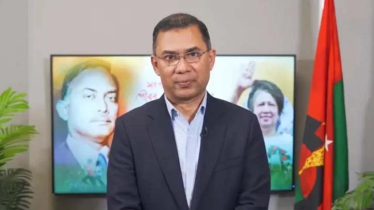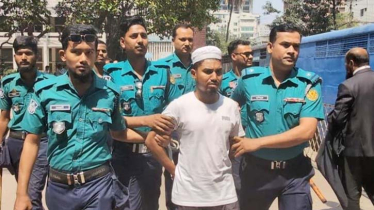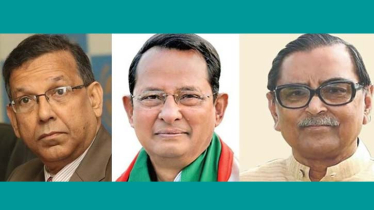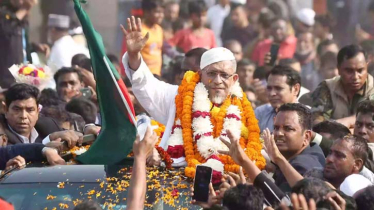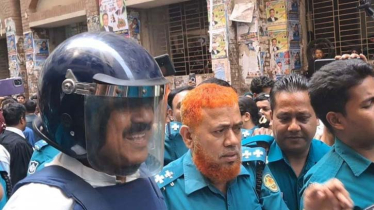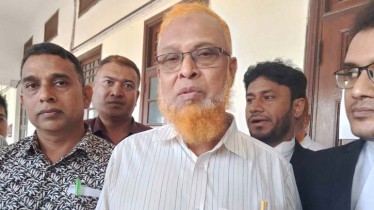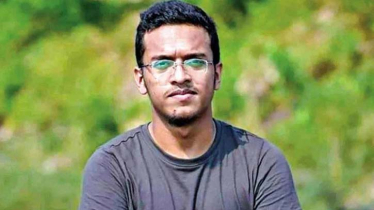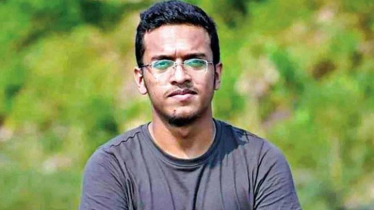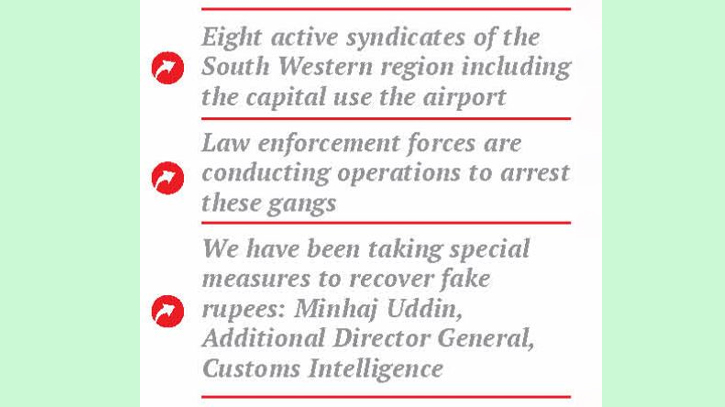
Photo: Messenger
Muhammad Ali, a middle-aged man, was found departing with his luggage after completing immigration procedures upon landing at Hazrat Shahjalal International Airport (HSIA) via a Pakistan Airlines flight.
Customs Intelligence Department officials raised suspicions about the brisk pace of his movements. Upon questioning, Ali explained that he owns a cloth shop and had brought some clothes for his business.
Officials, wary of suspicions, sought to search Muhammad Ali's luggage. Initially resistant, Ali attempted to prevent them, but eventually, the officials proceeded to open the luggage. To their surprise, amidst the folds of cloth, a substantial sum of counterfeit currency in the form of Rupees notes was discovered. Following Ali's arrest and subsequent counting, a staggering amount of 70 lakh 97 thousand fake rupees was revealed to be concealed within his belongings.
Counterfeit rupee notes are being illicitly transported into Bangladesh through Shahjalal International Airport, masked under the pretext of a Pakistani cloth business. Perpetrators, alternating between Pakistani and Bangladeshi citizenship, are employing innovative tactics to smuggle billions of fake rupees. The clandestinely imported counterfeit currency is then funneled into India through border districts.
Customs Intelligence Additional Director General Minhaj Uddin informed The Daily Messenger that the counterfeit rupees were primarily seized from Pakistan Airlines flights arriving from Karachi. Special measures have been implemented to curb the incidence of fake rupee recoveries, leading to a decline in this trend.
He further noted that Shahjalal International Airport is being exploited as a smuggling route to India. He identified the involvement of an international counterfeiting network in this activity. Individuals caught with counterfeit Indian rupees are often carriers, emphasising the necessity to apprehend their higher-ups or godfathers involved in the illicit operation.
In the meantime, customs intelligence authorities have officially filed a case against Muhammad Ali at the airport police station. The detective police have been assigned the responsibility of conducting a thorough investigation into the case. Following his arrest, intelligence officers initiated an interrogation after obtaining a remand for Muhammad Ali. During the investigation, several networks involved in circulating fake rupees were uncovered, along with the discovery of the route through which the counterfeit currency entered the country. Acting on this information, detective police apprehended two additional individuals linked to the case based on reliable sources.
As per an intelligence police source, it has become evident that a substantial amount of counterfeit rupees is being smuggled into Bangladesh under the guise of various garment products. Among the diverse methods employed for this illicit activity, at least 8 gangs operating in the capital and border districts of the southwestern region are utilising Bangladesh as a conduit to smuggle fake rupees from Pakistan into India.
The detective police have successfully identified these criminal networks, and imminent operations are planned to apprehend these gangs and curb the illicit flow of counterfeit currency through Bangladesh.
Intelligence officials have reported a decline in the trend of bringing fake rupees this year, attributing it to the identification and apprehension of counterfeiting gangs. Notably, there were no cases of fake rupee recoveries in March and April. The peak period for the influx of counterfeit currency was observed from July of the previous year to February of the current year. The efforts to curb this illicit activity have yielded positive results, leading to a notable reduction in such incidents.
As per information from airport customs authorities, approximately 10 crore fake rupees have been confiscated at Hazrat Shahjalal International Airport. In connection with these incidents, 10 Pakistani nationals, who were acting as carriers, have been apprehended. They have been subsequently handed over to the airport police station, and legal proceedings have been initiated with the filing of a case against them.
Harunur Rashid, head of Metropolitan Police, has stated, "We have identified 8 individuals involved in the circulation of fake rupees in Bangladesh. However, their names cannot be disclosed at this stage due to the ongoing investigation. They are currently being apprehended."
Intelligence officers have reported the arrest of two additional individuals, Yasin and Sohail, in connection with the Muhammad Ali case. These individuals were reportedly involved in bringing fake rupees under the guise of a cloth showroom named Seven Star Fashion on Elephant Road. The owner of the showroom, primarily based in Pakistan, is yet to be disclosed for investigation purposes and will be apprehended upon arrival in Bangladesh.
Furthermore, intelligence officers have indicated that operations will soon be conducted in border districts to apprehend individuals involved in the scam.
Airport Armed Police Battalion Additional Superintendent of Police, Ziaul Haque Palash, has expressed concern, characterising the issue as a threat to the state. He contends that simply apprehending the carrier does not unveil the masterminds orchestrating these illicit activities. Palash advocates for a more comprehensive approach, suggesting that in order to effectively curb the smuggling of counterfeit rupees, it is imperative to bring those operating behind the scenes within the ambit of the law. He asserts that addressing not only the immediate perpetrators but also the clandestine figures orchestrating these operations is crucial for eradicating the menace entirely.
Messenger/Sun Yath

